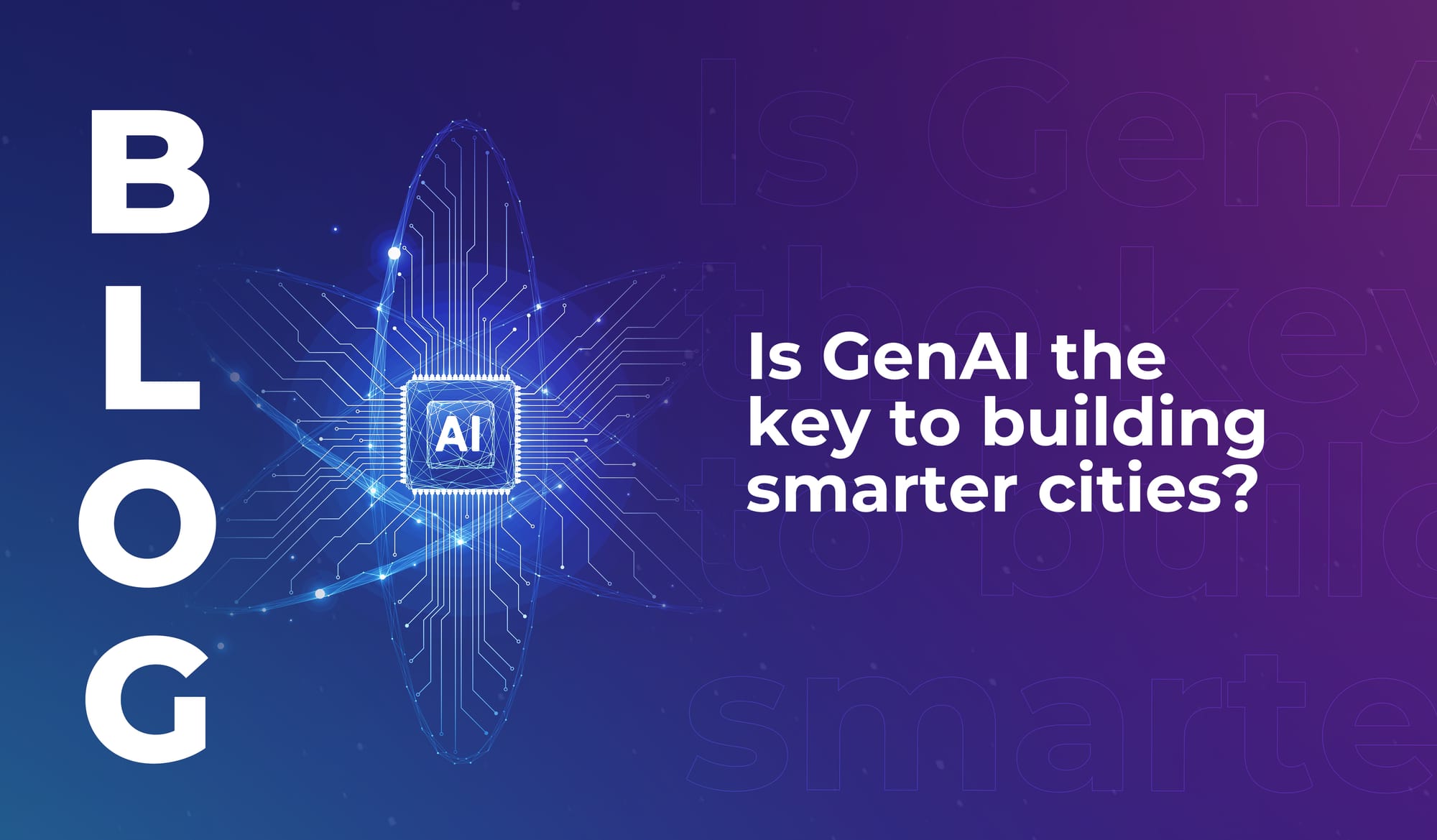
Is GenAI the key to building smarter cities?
Learn how generative AI is unlocking the true potential of digital twins – to make smart cities more efficient, inclusive, and citizen-focused.


According to The Paperless Project, US corporations spend $120bn on paper forms every year. Meanwhile, a global survey done by IDC in 2012 revealed that document challenges account for 21.3 percent of productivity loss. But what if there was an alternative that removes the need for much of current paperwork?
Smart contracts have been gaining momentum for some time now. The rise of cryptocurrency was the main force behind the publicity of smart contracts, then the NFT revolution of 2021 added to that.
Companies in tech, finance, and other fields are looking into smart contracts today, and even governments are warming up to the idea, albeit slowly.
What makes a contract smart?
To understand what makes a contract smart, we have to know what a contract is. Contracts are binding agreements between two or more parties that require an action of some type when specific criteria are met. They usually need a governing body that regulates them and ensures that parties fulfill their commitments.
Smart contracts are not written on paper, nor do they need a governing body to enforce them. Simply put, a smart contract is a piece of code hosted on the blockchain that includes the terms of the agreement between the parties. What makes smart contracts interesting is their ability to be self-fulfilling without an outside governing body.
To better understand smart contracts, let us imagine an agreement between a company and its CEO as follows; if the stock price reaches a set value, the CEO is entitled to a set amount of funds. It is simple to turn such an agreement into a smart contract; the program will periodically check the stock price, and once the price hits the agreed-upon value, it will transfer the funds to the CEO’s wallet.
The previous example is too straightforward, as it has the minimum number of clauses and parties. Real-world contracts are rarely this simple, but no matter how complicated the agreements are, we can almost always turn them into smart contracts, as long as it is possible to check their criteria and fulfill them electronically.
Smarter is better
It is essential to point out that smart contracts are by no means perfect, and they may have some flaws that need addressing. Yet, it is clear that smart contracts are superior in the cases that allow for their use. Advantages of smart contracts include:
Speed
Smart contracts self-execute immediately with minimum delay. They don’t have to deal with red tape and other delays like business hours or bureaucracy. Speed is highly important in the business world, as delays are costly, and settling monetary obligations is simpler through automatic means.
Cost efficiency
Most current contracts rely on intermediaries to do the deeds agreed upon by the contractors. The automation of contracts means the parties can reduce, if not eliminate, their reliance on intermediaries, saving costs in the process.
Trust
In contradiction to traditional contracts, smart contracts don’t rely on trust between the parties nor trust in a third party or an intermediary. Transactions can be validated, monitored, and enforced automatically, and it is possible to make trustless contracts between parties with no prior engagements.
Clearness and transparency
Smart contracts are hosted on the blockchain; therefore, they are always accessible for the involved parties and transparent to everyone to check. They are exact and will always read and proceed with the terms as they stand, reducing the possibility of hidden meanings and miscommunication between parties.
New business opportunities
Due to the inherent trust in smart contracts and their low cost, they may open the door to many new opportunities. Smart contracts may allow peer-to-peer lending, direct sale of real estate and other assets, and guaranteeing originality, among many other possibilities.
Smart contracts in government settings
In addition to its role in the business world, smart contracts can revolutionize property laws if applied in a manageable fashion. Yet, unlike the business world that could rely on current blockchains like the Ethereum blockchain, governments will most likely have to create their blockchains to have more control over transactions.
In a government setting, smart contracts may revolutionize the way we buy and sell assets like real estate, cars, and almost any goods that require a certificate of ownership. Instead of complicated paperwork, we can represent the sale of a house with a smart contract transferring an NFT representing the house from the seller to the buyer once the price is paid, in a CBDC (Central Bank Digital Currency).
Such a move will make markets easier to access and better suited for investment. Meanwhile, it will make car or digital equipment theft harder as thieves can no longer resell their loot. Yet, there are some issues with such a change, chief among them is the long adaption time.
In the business world, corporations are quick to adapt to new technologies whenever they recognize their benefits, but that is not true for the public. People will take time to adapt when the status quo changes. That might sway some but not all governments away from implementing such innovations.
In summary, smart contracts are the future of the business world, and they can upend the status quo allowing for more economic growth while simultaneously reducing crime rates. It may take years to witness the effect of smart contracts on our daily lives. But in the business world, they have already caused disruption and will grow in importance as corporations rely more on fintech solutions.

Learn how generative AI is unlocking the true potential of digital twins – to make smart cities more efficient, inclusive, and citizen-focused.

The smart cities of the future will use tech to lower emissions, cut urban temperatures, and improve quality of life in highly populated areas.

Discover the cities that rank highly for smart city preparedness, and learn why locally relevant innovation is more important than cutting-edge tech.

Learn how generative AI is unlocking the true potential of digital twins – to make smart cities more efficient, inclusive, and citizen-focused.

The smart cities of the future will use tech to lower emissions, cut urban temperatures, and improve quality of life in highly populated areas.

Discover the cities that rank highly for smart city preparedness, and learn why locally relevant innovation is more important than cutting-edge tech.